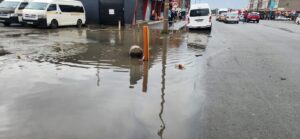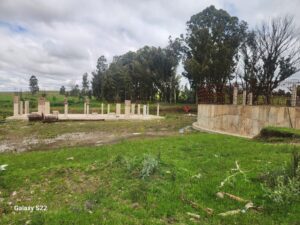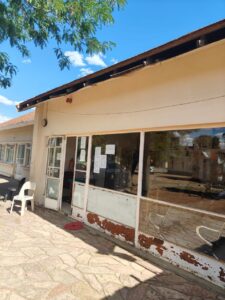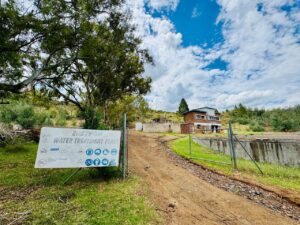Note to Editors: Please find attached English and Afrikaans soundbites by Igor Scheurkogel MP, and Sesotho soundbite by Jafta Mokoena MPL.
The Free State’s municipalities are in free fall. Rivers have become open sewers, waste piles up in our streets, and taps run dry. During the National Council of Provinces (NCOP) 2025 Provincial Week, the Auditor General confirmed that not one municipality in the province has a clean audit. This isn’t because the Constitution has failed us; it is because ANC municipalities lack the political will and have no consequences for officials who fail to perform.
We have submitted a motion to debate [Here] in the NCOP to hold the Free State Provincial Government accountable for the collapse of municipalities. The province has failed to enforce consequence management, fill key posts, support municipalities, or address the widespread service delivery and financial failures affecting every community in the Free State.
The Constitution and municipal legislation oblige provincial governments to support and strengthen municipal capacity, monitor performance, and design capacity-building programmes to deliver better services. Instead of using these tools, the Free State Department of Cooperative Governance is not utilising the legislative tools in the Municipal Systems Act and the Municipal Finance Management Act to address key issues.
All Free State municipalities, without exception, have failed to fill key vacant posts within six months, have not updated their indigent registers, and have an average revenue collection rate of 38%. The province also fails to fulfil its duty to compile Municipal Systems Act Section 47 performance reports, which provide a clear assessment of local government and guide provincial support.
Without these reports, there is no credible diagnosis of why municipalities fail.
The results are catastrophic. Municipalities submit poor-quality financial statements, ignore irregular expenditure and defy court orders. Debts to water boards and Eskom have ballooned.
Mafube, Matjhabeng and Kopanong face criminal cases for polluting rivers, and the National Treasury has withheld transfers because Free State municipalities owe R24.8 billion to water boards.
Wastewater plants have collapsed, and untreated sewage now poisons rivers and dams. This is not just a service delivery failure; it is a health crisis.
Free State CoGTA “support” has not developed the monitoring systems and capacity-building programmes required by the law. Weak internal controls and the absence of credible performance reporting have created a culture of impunity. The lack of leadership and the failure to utilise legislation mean residents across the province suffer, while ANC municipalities put their own needs before the needs of residents.
To fix municipal finances, we will continue to push through our local structures to:
- Implement correct billing systems, update indigent registers, and cut wasteful and fruitless expenditures.
- Firm partnerships with civil society to drive collaborative service delivery and community-led development.
- Reduce excessive wage bills and restructure municipal organograms to professionalise the administration and ensure efficiency.
- Implement and enforce service-delivery-oriented bylaws that promote local economic growth, youth empowerment, and clean governance.
- Ensure that all municipal officials are qualified, capable, and fit for purpose, with merit-based appointments that put residents first.
Residents of the Free State have a chance to change this through the 2026 Local Government Elections. Elections allow communities to replace corrupt and incompetent councils with leadership that honours the Constitution.
When you vote, remember that the current government has turned our rivers into sludge and left our municipalities bankrupt. By enforcing consequence management, filling vacant posts, and insisting on transparent audits, we can restore dignity, health and hope to the Free State.
With accountable leadership and informed voters, the Free State can move from collapse to recovery.




